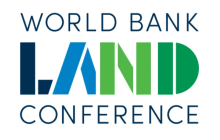Pastoralism in West Africa: Best Practices and Challenges for Public Policies
The session explored the challenges facing pastoralism in West and Central Africa, emphasizing the pressures exerted by climate change, demographic growth, privatization, and the expansion of farmland. Discussions highlighted how collective grazing practices, which accommodate the region’s ecological variability, have been sidelined in favor of privatized resources and sedentary livestock systems that prioritize agricultural interests. Despite their suitability for local ecosystems, communal grazing methods struggle for recognition within current public policies. The dialogue centered on assessing the viability of these traditional practices in a rapidly changing environment, advocating for regulatory frameworks that integrate local negotiated rights and foster dialogue between stakeholders. Case studies from various countries in the region illustrated the potential benefits of recognizing communal land-use arrangements, emphasizing their importance in ensuring sustainable resource management. The session also examined how pastoralism could be better supported through inclusive land reforms, which acknowledge the value of mobility and collective land management in building resilience to climate change. The panel underscored the need for policy adjustments that safeguard pastoralism as a viable livelihood and environmental strategy, balancing traditional land-use practices with modern regulatory demands to support the long-term sustainability of pastoral communities.
This resource has been made available by the organizers of the World Bank Land Conference under the following disclaimer.
This resource has been made available by the organizers of the World Bank Land Conference under the following disclaimer.


